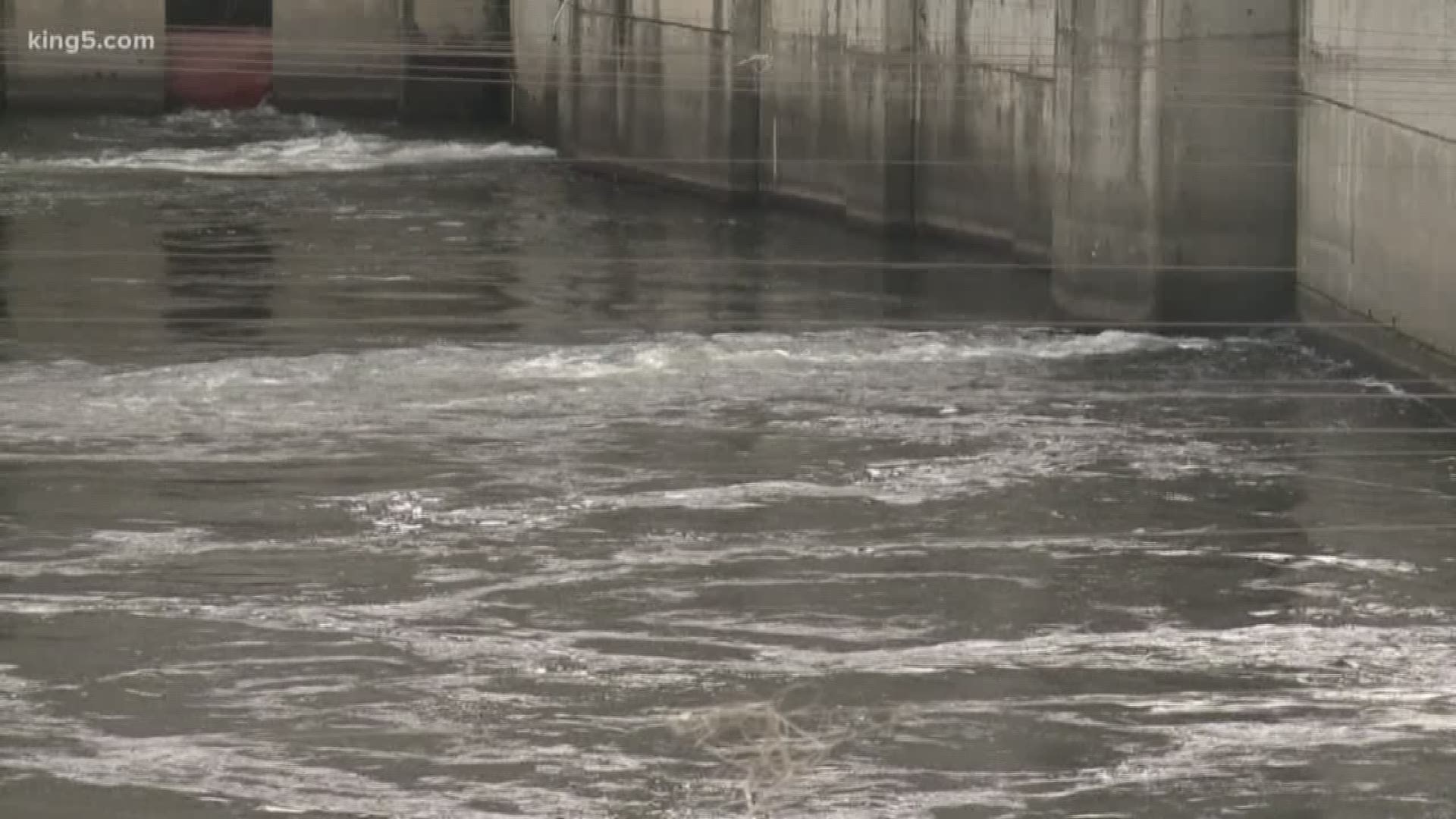Editor’s note: The video above was originally published in January 2019.
SPOKANE, Wash. — Washington state’s top Democrats have come out against a proposal from U.S. Rep. Mike Simpson, R-Idaho, to remove four hydroelectric dams on the Snake River and replace their benefits as part of a huge infrastructure bill being crafted by the Biden administration.
Gov. Jay Inslee and U.S. Sens. Patty Murray and Maria Cantwell said Friday more work is needed on a comprehensive solution to save endangered salmon runs.
The proposal had gained the support of Oregon Gov. Kate Brown as well as many tribes after it was announced last winter.
Simpson’s $33.5 billion proposal would breach four dams on the Lower Snake River by the end of the next decade, freeing up the waterway for long-ranging salmon that are also a key food source for Southern Resident orcas. The plan would pay for finding ways to replace the dams’ key roles in energy, agriculture and transportation.
"While we appreciate Representative Simpson’s efforts and the conversations we have had so far with Tribes and stakeholders, it is clear more work within the Pacific Northwest is necessary to craft a lasting, comprehensive solution, and we do not believe the Simpson proposal can be included in the proposed federal infrastructure package. Therefore, we are calling for a formal, regional process that is based on science, consensus, and ensuring all voices in the region are heard," Murray and Inslee said in a joint statement Friday.
Republican members of Washington’s congressional delegation oppose Simpson’s plan.
Sen. Murray and Gov. Inslee's full joint statement on the future of the Columbia River Basin can be read below:
“Regional collaboration on a comprehensive, long-term solution to protect and bring back salmon populations in the Columbia River Basin and throughout the Pacific Northwest is needed now more than ever. However, a solution must ensure those who rely on the river in the Basin and across the Pacific Northwest are part of the process. Any solution must honor Tribal Treaty Rights; ensure reliable transportation and use of the river; ensure ongoing access for our region’s fishermen and sportsmen, guarantee Washington farmers remain competitive and are able to get Washington state farm products to market; and deliver reliable, affordable, and clean energy for families and businesses across the region.
“We must rely on science-based and community-driven forums to help bring people together and reach actionable solutions. While we appreciate Representative Simpson’s efforts and the conversations we have had so far with Tribes and stakeholders, it is clear more work within the Pacific Northwest is necessary to craft a lasting, comprehensive solution, and we do not believe the Simpson proposal can be included in the proposed federal infrastructure package. Therefore, we are calling for a formal, regional process that is based on science, consensus, and ensuring all voices in the region are heard. Importantly, it is critical that this process takes all options into consideration, including the potential breaching of the Lower Four Snake River Dams. Entities like the Columbia Basin Collaborative (CBC) could help us identify a plan that would uphold these principles and identify a path to achieving consensus and collaboration.
“To make this goal into reality, certain key steps must be part of our approach:
- The work of the Columbia Basin Collaborative should be accelerated and result in clear, detailed proposals for the future of the region that reflect the best available science, comprehensive stakeholder input and consensus.
- Infrastructure must be part of the solution. That means investments in clean energy storage solutions, habitat restoration, transportation infrastructure, waterway management, Washington’s agricultural economy, and more.
- Solutions that benefit the entire Columbia River Basin must be pursued. Washington state has a history of successfully bringing diverse groups together to develop solutions that benefit all stakeholders. This must be the model for the management of the Columbia River Basin.
“We are ready to work with our Northwest Tribes, states, and all the communities that rely on the river system to achieve a solution promptly. We, too, want action and a resolution that restores salmon runs and works for all the stakeholders and communities in the Columbia River Basin.”

